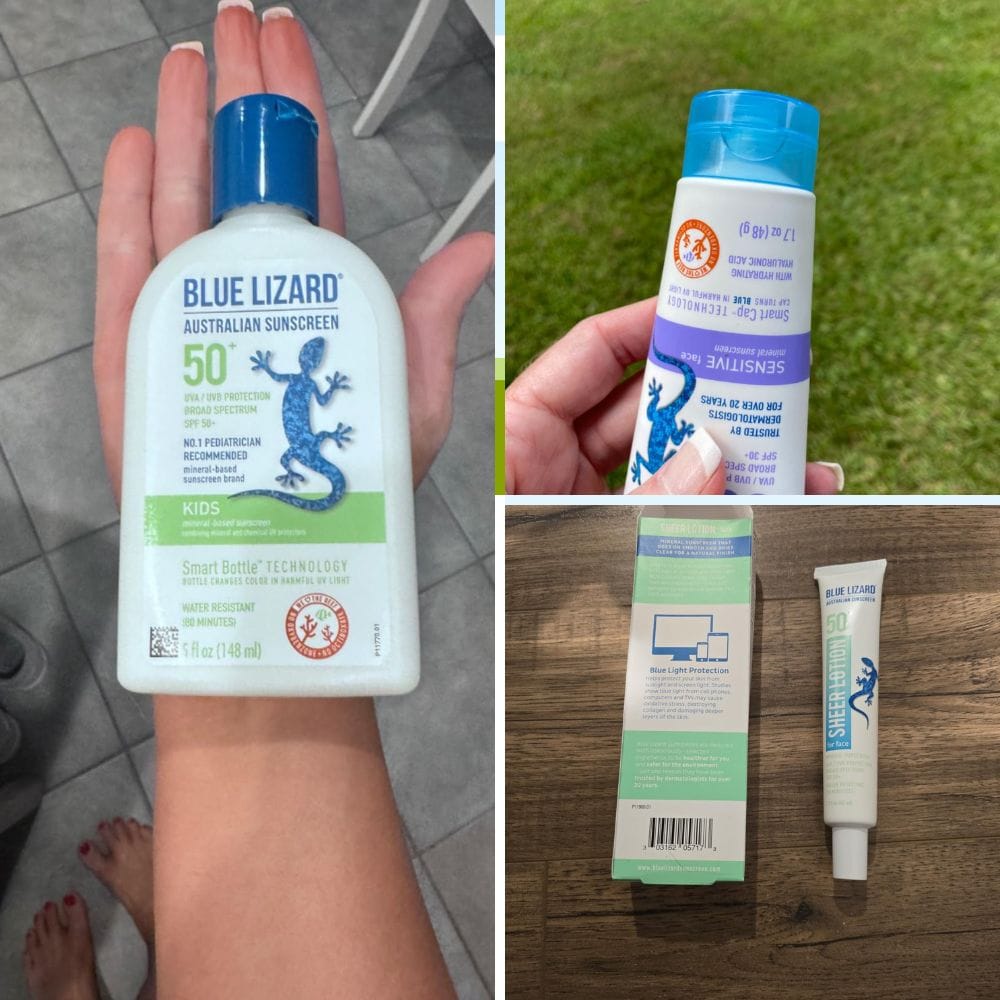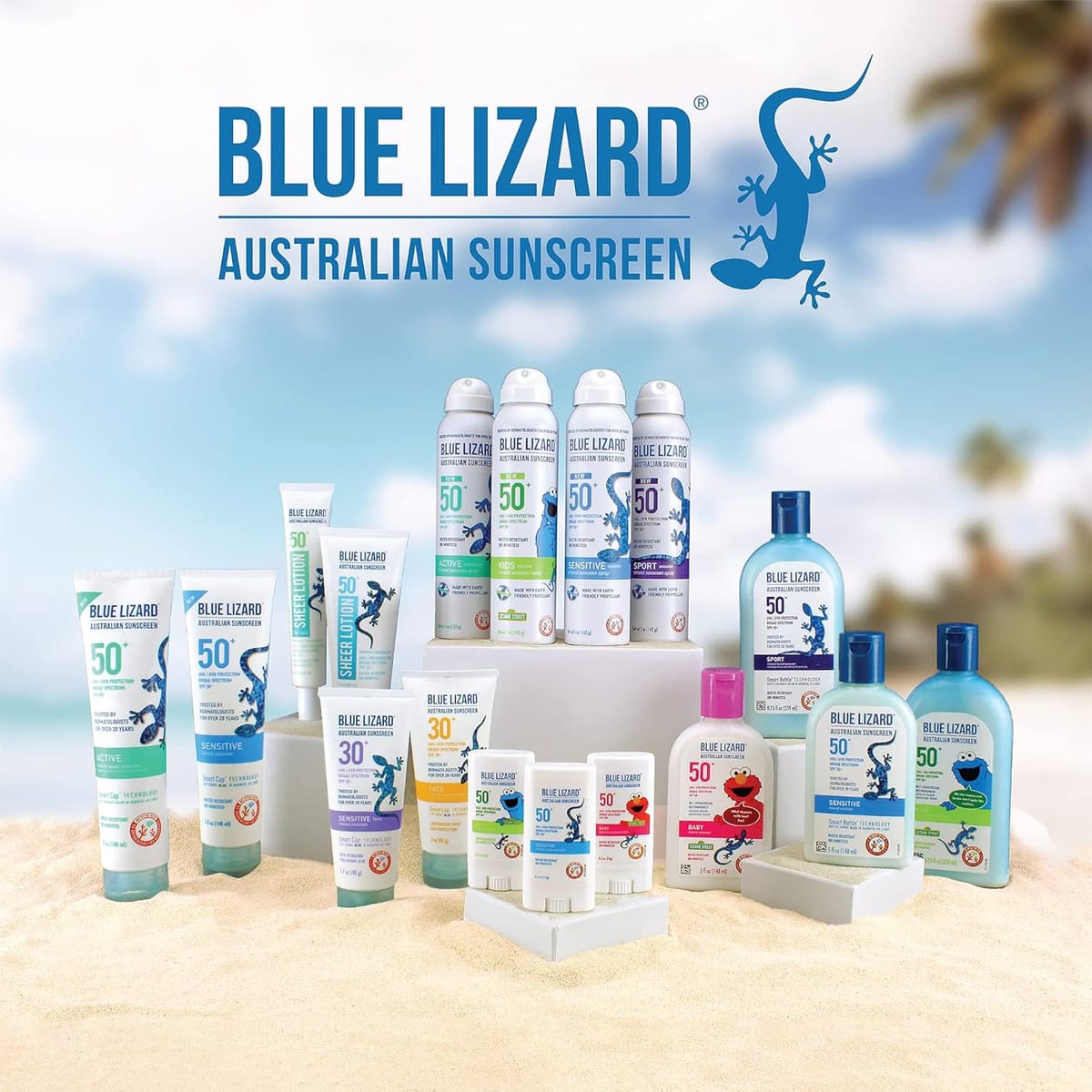In today's digital age, our skin is exposed to more than just the sun's UV rays. Blue light, emitted from our beloved gadgets, is a new player in the skincare game. But fear not, as sunscreens have evolved to tackle this modern-day menace. Let's dive into the world of sunscreens and discover the ingredients that shield us from blue light.
Key Takeaways:
- Blue light can penetrate deeper into the skin than UV rays, potentially causing damage.
- Certain ingredients in sunscreen are specifically formulated to block blue light.
- Incorporating blue light-blocking sunscreens into your routine can protect your skin from digital exposure.
Understanding Blue Light
Blue light, also known as high-energy visible (HEV) light, is a part of the visible light spectrum. Unlike UV rays, which are invisible, blue light is visible to the naked eye and is emitted by the sun and digital devices like smartphones, tablets, and computers. While natural blue light from the sun helps regulate our sleep-wake cycle, excessive exposure from screens can lead to skin damage.
Research suggests that blue light can penetrate deeper into the skin than UV rays, potentially causing oxidative stress, inflammation, and premature aging. This has led to a growing interest in skincare products that offer protection against blue light, with sunscreens being at the forefront of this innovation.
The Role of Sunscreen in Blocking Blue Light

Sunscreens have long been our go-to for UV protection, but now they are stepping up to the plate to combat blue light as well. The key lies in the ingredients used in these formulations. Traditional sunscreens may not offer adequate protection against blue light, which is why specific ingredients are being incorporated to address this need.
These ingredients work by either reflecting or absorbing blue light, preventing it from penetrating the skin. As consumers become more aware of the potential harm caused by blue light, the demand for sunscreens with these protective ingredients is on the rise.
Zinc Oxide: The Unsung Hero
Zinc oxide is a mineral that has been used in sunscreens for decades. Known for its broad-spectrum UV protection, zinc oxide also offers a shield against blue light. This ingredient works by sitting on the skin's surface and reflecting light away, making it an effective barrier against both UV and blue light.
In addition to its protective properties, zinc oxide is gentle on the skin, making it suitable for all skin types, including sensitive skin. Its ability to block blue light without causing irritation makes it a popular choice in sunscreens designed for digital protection.
Titanium Dioxide: A Dual Protector

Similar to zinc oxide, titanium dioxide is another mineral that provides broad-spectrum protection. It acts as a physical barrier, reflecting both UV and blue light away from the skin. This dual protection makes titanium dioxide a valuable ingredient in sunscreens aimed at combating digital exposure.
Titanium dioxide is often used in combination with other ingredients to enhance its protective capabilities. Its non-irritating nature and effectiveness in blocking blue light make it a staple in many sunscreens formulated for modern-day skincare needs.
Iron Oxides: The Colorful Shield
Iron oxides are pigments commonly used in cosmetics for their coloring properties. However, they also play a crucial role in blocking blue light. These pigments work by absorbing blue light, preventing it from penetrating the skin and causing damage.
Incorporating iron oxides into sunscreens not only provides blue light protection but also offers a cosmetic benefit by evening out skin tone. This makes them a popular choice for tinted sunscreens, which offer both protection and coverage.
Antioxidants: The Skin's Defense System

Antioxidants are compounds that neutralize free radicals, which are unstable molecules that can cause damage to cells. Blue light exposure can increase the production of free radicals, leading to oxidative stress and skin damage. Incorporating antioxidants into sunscreens can help combat this effect.
Ingredients like vitamin C, vitamin E, and niacinamide are powerful antioxidants that can protect the skin from blue light-induced damage. By neutralizing free radicals, these ingredients help maintain the skin's health and prevent premature aging.
Lutein: Nature's Blue Light Filter
Lutein is a carotenoid found in leafy greens and other vegetables. Known for its eye health benefits, lutein also offers protection against blue light. This natural ingredient works by absorbing blue light, reducing its penetration into the skin.
Incorporating lutein into sunscreens provides an additional layer of protection against digital exposure. Its natural origin and effectiveness in blocking blue light make it an attractive ingredient for those seeking a more holistic approach to skincare.
Melanin: The Skin's Natural Armor

Melanin is the pigment responsible for the color of our skin, hair, and eyes. It also plays a role in protecting the skin from UV and blue light. Synthetic melanin is being used in sunscreens to enhance their protective capabilities against blue light.
By mimicking the skin's natural defense mechanism, synthetic melanin helps prevent blue light from penetrating the skin. This innovative approach to sunscreen formulation offers a promising solution for those concerned about digital exposure.
The Importance of Broad-Spectrum Protection
While blue light protection is crucial, it's important not to overlook the need for broad-spectrum protection against UV rays. Sunscreens that offer both UV and blue light protection provide comprehensive coverage, ensuring your skin is shielded from all angles.
When choosing a sunscreen, look for products labeled as "broad-spectrum" and check the ingredient list for blue light-blocking components. This will ensure you're getting the most out of your sunscreen and protecting your skin from both natural and digital sources of light.
Incorporating Blue Light Protection into Your Routine

Adding a blue light-blocking sunscreen to your skincare routine is a simple yet effective way to protect your skin from digital exposure. Apply it daily, even if you're indoors, as blue light from screens can still affect your skin.
Consider using a tinted sunscreen with iron oxides for added protection and coverage. Pair your sunscreen with other skincare products containing antioxidants to further enhance your skin's defense against blue light.
The Future of Sunscreen Innovation
As our understanding of blue light and its effects on the skin continues to grow, so does the innovation in sunscreen formulations. Researchers are exploring new ingredients and technologies to enhance blue light protection, offering consumers more options to safeguard their skin.
The future of sunscreens lies in their ability to adapt to our changing lifestyles and environmental exposures. By staying informed and choosing products that address both UV and blue light protection, you can ensure your skin remains healthy and resilient.


Can blue light really damage my skin?
Yes, blue light can penetrate deeper into the skin than UV rays, potentially causing oxidative stress, inflammation, and premature aging. It's important to protect your skin from both UV and blue light exposure.
Are all sunscreens effective against blue light?
Not all sunscreens offer blue light protection. Look for products that contain ingredients like zinc oxide, titanium dioxide, iron oxides, and antioxidants, which are specifically formulated to block blue light.
How often should I apply blue light-blocking sunscreen?
Apply blue light-blocking sunscreen daily, even if you're indoors, as blue light from screens can still affect your skin. Reapply every two hours if you're exposed to screens for extended periods.

In the digital age, protecting our skin from blue light is just as important as shielding it from UV rays. Ingredients like zinc oxide, titanium dioxide, iron oxides, antioxidants, lutein, and synthetic melanin play a crucial role in blocking blue light and preventing skin damage. By incorporating these ingredients into your skincare routine, you can protect your skin from the harmful effects of digital exposure and maintain a healthy, youthful complexion.











